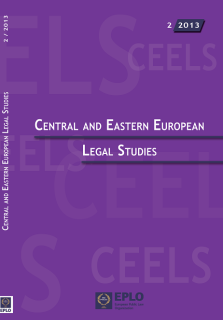
"LOCAL" BODIES OF SOCIAL PARTICIPATION
IN THE GREEK EDUCATIONAL SYSTEM
AMBIGUOUS LAWS AND PRACTICES
AND THE AMBIVALENCE
OF THE PUBLIC POLITICAL DISCOURSE (1982-2013)
KOSTAS FASSOULIS
Associate Professor in the Department of Primary Education at the Uni¬versity of Athens
In the 1980s the need for wider social participation in issues of Primary and Secondary Education in countries of the European Union began to be felt. In the Greek educational system with the provisions of Law 1566/1985, "local" bodies of social participation, such as Municipal or Community Committees, School Committees, School Boards, and recently (2010), School Community Councils have been institutionalized; these bodies have actually operated more as management-financial bodies and less as bodies of effective participation in the operation of the School Community and are even in a large discrepancy with the objectives and the rhetoric of the explanatory report of Law 1566/1985. By subsequent regu¬lations, mainly in 1990, 1992, 2006 and 2010, a closer link of education to local government as a result of the new architecture of governance and decentralized administration was sought. Nevertheless, the degree of decentralization of decisions concerning the school operation is characterized by strong centralization even today. The public discourse of the political lead¬ership of the Ministry of Education during the years 2011-2012 with the aim to "strengthen the autonomy and transformation of the school unit from an agency of exclusive executive powers into an agency of parental host and co-formulation of educational policy" has remained a renounced objective without a follow-up. Yet, the need to redefine the purpose and work of the bodies of social participation in the Greek educational system in terms of effective decentralization in decision-making, financing and governance and social accountability remains a desideratum and a condition for convergence with decentralized structures and institutions of social participation in the educational systems of EU Member States.




















